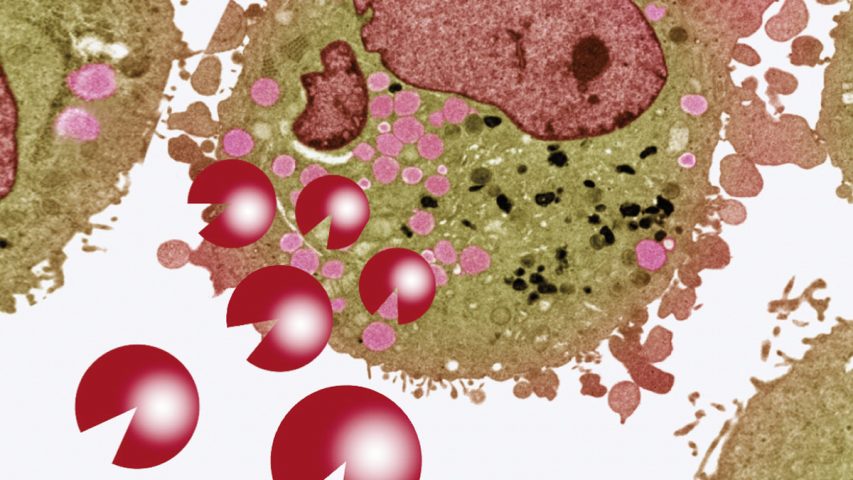- Have any questions? Contact us!
- info@dr-rath-foundation.org

Auschwitz survivors and Dr. Rath Foundation set new goals for Movement of Life
July 25, 2013
Commentary on the Safety of Vitamins
August 16, 2013Micronutrients inhibit key tissue digesting enzymes in various types of sarcomas

Two new scientific publications from the Dr. Rath Research Institute are now available in the International Journal of Oncology. They present the results of our studies showing that a unique nutrient mixture (NM) can modulate key enzymes involved in tissue degradation in various types of adult and pediatric human sarcoma cells. These enzymes include urokinase plasminogen activators (u-PA), matrix metalloproteinases (MMPs) and their inhibitors.
Sarcomas are highly aggressive tumors with poor prognosis characterized with high levels of proteases, which play a key role in tumor cell invasion and metastasis. The standard treatments for sarcomas include surgery, chemotherapy and radiation with severe associated toxicity and limited efficacy, clearly indicating a need for safe and effective therapeutic approaches to control progression and metastasis, especially in young sarcoma patients.
Strong clinical and experimental evidence demonstrates that elevated levels of connective tissue digesting enzymes such as u-PA and MMPs are associated with cancer progression, metastasis and shortened patient survival. Activities of MMP enzymes are regulated naturally by specific tissue inhibitors of metalloproteinases (TIMPs). The aim of our studies was to analyze the effect of a nutrient mixture (NM) on activity of u-PA, MMPs and TIMPs in adult (fibrosarcoma, chondrosarcoma, liposarcoma, synovial sarcoma, uterine leimyosarcoma) and pediatric (osteosarcoma, rhabdomyosarcoma) cell lines.
The results of these studies are significant since they demonstrated that micronutrients acting in synergy (NM) significantly inhibited secretion of u-PA in all these cell lines, therefore they can limit cancer cells ability to migrate in the tissue. Furthermore, the NM demonstrated dose-dependent decrease in MMP secretion and increase in the secretion of their inhibitor (TIMP-2) by these sarcoma cell lines, suggesting NM potential in modulating sarcoma cell invasion and metastasis. Inhibition of MMP secretion by NM correlated significantly with decreased invasive properties of these cell types. Furthermore, use of the nutrient mixture would not pose any toxic effect clinically, especially in the relevant doses, as our previous in vivo safety studies have demonstrated.
July 25, 2013
Modulation of u-PA, MMPs and their inhibitors by a novel nutrient mixture in adult human sarcoma cell lines
M.Waheed Roomi, Tatiana Kalinovsky, Aleksandra Niedzwiecki and Matthias Rath
Dr. Rath Research Institute, Santa Clara, CA
International Journal of Oncology 2013, DOI: 10.3892/ijo.2013.1934
Modulation of u-PA, MMPs and their inhibitors by a novel nutrient mixture in pediatric human sarcoma cell lines
M.Waheed Roomi, Tatiana Kalinovsky, Aleksandra Niedzwiecki and Matthias Rath
Dr. Rath Research Institute, Santa Clara, CA
International Journal of Oncology 2013, DOI: 10.3892/ijo.2013.2013


